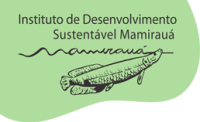About Instituto de desenvolvimento sustentavel mamiraua
Instituto de Desenvolvimento Sustentável Mamirauá: Pioneering Sustainable Research in the Brazilian Amazon
The Instituto de Desenvolvimento Sustentável Mamirauá (Mamirauá Sustainable Development Institute) is a research unit that operates in the heart of the Brazilian Amazon. Founded in 1999, it has been at the forefront of sustainable development and conservation efforts in the region for over two decades.
The institute's mission is to promote sustainable development through scientific research, technological innovation, and community engagement. Its work focuses on three main areas: biodiversity conservation, natural resource management, and social inclusion.
Biodiversity Conservation
The Amazon rainforest is one of the most biodiverse regions on Earth, home to countless species of plants and animals found nowhere else. The Instituto Mamirauá recognizes this unique ecological value and works tirelessly to protect it.
One of its flagship programs is the Mamirauá Reserve, a protected area covering over 1 million hectares of pristine forest. The reserve serves as a living laboratory for researchers studying everything from rare bird species to aquatic mammals like river dolphins.
Natural Resource Management
Sustainable development requires careful management of natural resources such as water, timber, and fish stocks. The Instituto Mamirauá has developed innovative approaches to these challenges that balance economic growth with environmental protection.
For example, its community-based fisheries management program empowers local communities to manage their own fishing resources sustainably. This approach has led to increased fish populations while also providing economic benefits for local fishermen.
Social Inclusion
Finally, sustainable development must be inclusive – benefiting all members of society regardless of gender or ethnicity. The Instituto Mamirauá recognizes this imperative and works closely with local communities to ensure their voices are heard in decision-making processes.
Its social inclusion programs focus on issues such as education access for indigenous children and women's empowerment initiatives. By working collaboratively with local communities, the institute is helping to build a more equitable and sustainable future for all.
Conclusion
The Instituto de Desenvolvimento Sustentável Mamirauá is a shining example of how scientific research can be used to promote sustainable development. Its innovative programs in biodiversity conservation, natural resource management, and social inclusion are making a real difference in the lives of people and animals in the Brazilian Amazon.
As we face ever-increasing environmental challenges such as climate change and deforestation, institutions like the Instituto Mamirauá are more important than ever. By continuing to push the boundaries of sustainable development research, they offer hope for a brighter future for us all.
